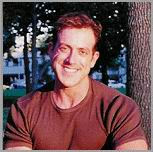
A new study confirms what many of already know: Regular exercise is one of the best ways to combat daily stress.
Researchers at the University of Texas, Houston, asked 135 college students to fill out questionnaires to assess their daily stress loads as well as their moods, physical activity patterns and overall health.
Those who reported exercising less often experienced 37 percent more physical symptoms and 21 percent more anxiety during periods of high stress than those who exercised more frequently.
Exercise, it seems, offered students a temporary respite from their problems, a period of rejuvenation before returning to the pressure of daily stress.
According to lead researcher Dr. Cindy L. Carmack, ''Minor, everyday stress contributes to the development and exacerbation of physical and mental health problems. However, people experiencing minor stress develop different degrees of symptoms, depending on their level of physical activity.''
Get in The Best Shape Of Your Life!!
P.S. Don’t let the next 12 months be the same as the last 12 months. Do something about it by Calling Right Now!
You CAN do this! Start your FREE Complimentary Session.
To Your Continued Success,
David Di Francesco
714-420-2668
www.TheBodyLoft.biz
www.TheLivingWarrior.com





